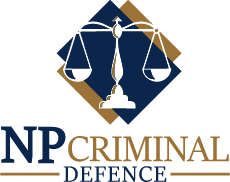Featured Services
Bail Hearings
A bail hearing is an accused person’s right if they are not released from the police station directly when charged with a crime. If you are held for bail. You must retain effective counsel to represent you at the bail hearing.
Norman Panzica is an experienced bail hearing or criminal Defence lawyer who advocates for releasing clients on bail with the least reactive conditions possible.
You will need to have people prepared to support your request for bail (called “sureties”) who must be available to attend court, along with Norman Panzica, who will present a release plan on bail.
A bail application can proceed with the consent of the crown attorney, who will agree to release on agreeable terms. If the crown attorney opposes bail, then a “contested bail hearing” is scheduled as quickly as possible.
At a contested bail hearing, the crown attorney can ask that an accused person remains in custody until the trial of the matters based on one or more of three “grounds” in the Criminal Code.

– The “Primary Ground” is that the accused will not attend court or may flee the jurisdiction and/or
– the “Secondary Ground” that the accused is a public safety risk and there is a substantial likelihood the person will re-offend if released on bail and/or
– The “Tertiary Ground” is that the public will lose confidence in the administration of justice if the person is released on bail.
Whether the bail hearing proceeds on consent or as a contested hearing, it is generally required that an accused have one or more persons available to come to court and offer to supervise the person seeking bail, known as a “Surety.” Those persons typically must pledge money or assets to support their plan to handle an accused person seeking bail.
Suppose the presiding Justice of the Peace denies you bail, or you are released on bail but disagree with one or more bail conditions. In that case, you can apply to the Ontario Superior Court of Justice to seek a review of the lower court order denying your bail or ordering conditions you disagree with. There is also the possibility that the crown attorney may agree to change one or more of your bail conditions at a point after the bail hearing. This is known as a “bail variation.”
It would be best if you had an experienced criminal justice attorney to seek your release on bail and prepare your Surety before conducting a bail hearing.
Call Norman Panzica at NP Law immediately.

Aggravated Assault
Assault is well-defined in the Criminal Code of Canada as the purposeful use of force, or the attempt or threat of power, to another person without that person’s permission.
Various legal defences are available to defend an assault charge, including where two people agree to assault each other, a consent fight, provided that neither person is injured due to the battle.
While harm or injury are required to establish a more serious crime, including assault causing bodily harm, aggravated assault, and murder, there is no requirement to prove injury to the other party to establish an assault charge.
Aggravated assault is the most severe assault offence in Canada’s Criminal Code; being a reliable criminal Defence lawyer.
If you are found guilty of this offence, you will likely spend some time behind bars.
You need an experienced and professional criminal lawyer if you are charged with Assault Causing Bodily Harm or Aggravated Assault.
Call Norman Panzica at NP Law right now.
Domestic Assault
Domestic assault charges relate to alleged assaultive behaviour by a person against their intimate partner, often a spouse, girlfriend or boyfriend. There is no separate charge in the criminal Code of domestic assault when it comes to criminal defence law.
It is an assault charge, but it is treated more seriously by the crown attorney, who typically has less flexibility than in cases that do not involve an intimate partner.
When an individual is arrested for assaulting an intimate partner, they are usually kept for a bail hearing and not released by a police officer. If and when released on bail, terms generally include not having contact with the intimate partner until the case is completed or until the bail terms are changed. Exceptions to a bail condition that requires the person not to contact their partner may be sought in various circumstances, commonly to permit arranging access to any children.
Domestic assault is a serious crime and requires an experienced and skilled criminal Defence lawyer to defend appropriately.
Call Norman Panzica at NP Law immediately if you are charged with domestic assault.


Arson
Under the Criminal Code of Canada, anybody who knowingly or carelessly causes property damage not entirely held by that person by fire or explosion is guilty of an indictable crime and subject to imprisonment for a term not overextending fourteen years.
Arson is also defined in the Criminal Code as when a person knowingly or carelessly causes harm by fire or explosion to property that he/she owns in whole or part and if the fire or explosion adversely threatens the health, safety, or property of another person.
Drug Possession and Trafficking
Drug charges, including possession, possession for trafficking and trafficking charges, are set out in the Controlled Drugs and Substances Act.
Possession can be actual possession, for example, when drugs are found on you. It can also be known as “constructive,” where the drugs are not on you but in a place such as a home or motor vehicle with your knowledge and consent. Possession can also be joint with other persons, despite who has the drugs with them or wherever they may be.
Drug offences range from minor, such as personal possession of a tiny amount, to trafficking, manufacturing, or importing more significant amounts of hazardous drugs, such as fentanyl.
If you are found guilty of more serious charges, you will face very long periods of imprisonment.


Murder and Manslaughter
According to Canada’s Murder Criminal Code, a person commits “homicide” when they directly or indirectly cause the death of another human being.
“Culpable” homicide is defined as murder, manslaughter, or infanticide when the individual who causes the death of another person does so with some amount of criminal wrongdoing.
Marginal note:
Murder, whether first or second degree, always results in a life sentence if prosecuted.
However, the difference in parole eligibility between first and second-degree murder is significant, with first-degree murder imposing immediate parole ineligibility for twenty-five years.
A conviction for second-degree murder results in a minimum of ten years of parole ineligibility.
First-degree murder typically requires proof beyond a reasonable doubt of planning or deliberation, but it can also be found without planning and consideration in some circumstances, such as when another crime, such as sexual assault or kidnapping, is committed around the time of the homicide, or when the victim is a police officer.
The Criminal Code also remarks that a person who commits culpable homicide but does not intend to commit murder may be judged guilty of manslaughter.
An accused individual who does not intend to commit murder but results in a responsible homicide may be convicted of manslaughter.
While a murder conviction leads to an automatic life sentence, a manslaughter conviction does not, albeit the defendant is still subject to a life sentence in prison.
Murder and manslaughter charges are challenging to defend in court. If you or someone you know has been arrested for murder or manslaughter, you will need the service of a qualified and experienced criminal Defence lawyer.
Call Norman Panzica at NP Law as soon as you are arrested or approached by the police.
Impaired Driving offences
Impaired driving offences are exceedingly legally complicated to defend in court and need the services of an expert criminal lawyer.
The Criminal Code of Canada provisions concerning impaired driving was repealed in December 2018 and replaced with a more comprehensive approach.
The impact entails several modifications, some of which are listed below.
– Replacing the phrase “motor vehicle” with “conveyance” broadens the activity covered by these offences.
-“Conveyance” includes a motor vehicle, watercraft, airplane, or railway equipment; -random breath testing and screening are now permissible when a police officer has a certified screening device.
-The offence of excessive alcohol now punishes the operation of a conveyance if the person is proven impaired by alcohol within two hours of ceasing to operate transportation.
This subject of law is extensive and exceedingly complex. If you are arrested for impaired driving or a similar offence, contact Norman Panzica at NP Law quickly.

Theft/Possession/Fraud Charges

Robbery and theft
Robbery is mainly a property crime from another person with a different intent of violence against another person.
Actual or threatening violence.
Theft
The Criminal Code defines theft as “a person fraudulently and without colour of right stealing or concealing for his own or another person’s benefit, anything living or inanimate, with intent to steal.”
– To deprive the owner of it, or an individual who has a particular property or interest in it, of the thing or his property or involvement in it, temporarily or permanently;
– To pledge or deposit it as security; – to part with it under a condition for its return that the person who part with it may be unable to perform; or
– To deal with it so that it cannot be restored in the condition it was in when it was taken or converted.
Everyone commits robbery if who:
(a) Steals and, in order to extort whatever is robbed or to overpower resistance to the stealing, uses brutality or threats of violence to an individual or property;
(b) Robs from any person and, at the time of the robbery or instantly before or immediately after, wounds, beats, strikes, or abuses any personal violence to that person;
(c) Charges someone with the intent to steal from him; steals
RS, c.
Stealing carries a maximum punishment of life in prison.
Call Norman Panzica at NP Law for a complimentary consultation if you have been charged with Robbery, Theft, or any other crime because a criminal Defence lawyer is must at any cost.
Weapons and Firearms Charges

Weapon
The Criminal Code defines weapons broadly.
A “weapon” is defined as something designed to harm or injure another person.
Items such as “firearms” and gadgets such as brass knuckles or crossbows will always match the definition of a weapon.
Other things, such as a pocket knife or hunting knife, must be “used, planned to be used, or intended for use in committing death or damage to any person or to threaten or frighten any person” to qualify as a weapon.
To show that an object is a weapon, the Crown Attorney must demonstrate that it fulfills these criteria or falls inside a list of forbidden weapons.
The courts take firearms and weapon crimes in Canada seriously, especially considering the incidence of gun crime in the country, and tend to result in heavy jail terms.If you are charged with a gun or other weapons offence, you will require the representation of an experienced criminal lawyer.
Call NP Law right away for a free consultation with Norman Panzica.
Personal Injury
Norman Panzica has been representing a select number of serious personal injury matters over the past 30 years. Slip and fall, wrongful death and car accidents involve complex issues and strategies and require skilled and successful representation.
If you have been injured as a result of someone’s negligence, or have lost a loved one through the negligence or intentional actions of another perison or corporation, call Norman Panzica at NP Law immediately for a free consultation.

